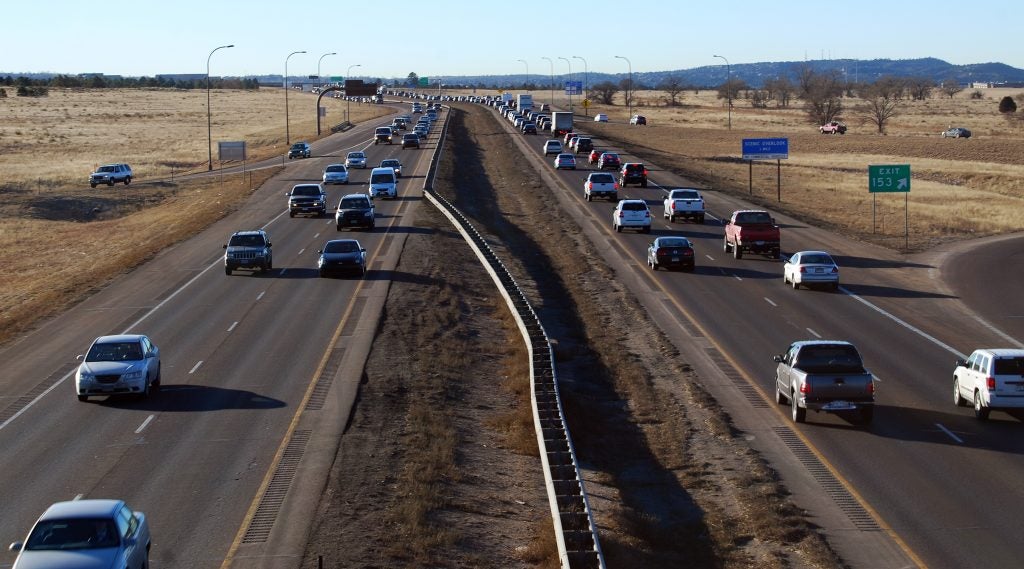Four ways the Trump administration’s Clean Cars rollback would harm Americans

The Trump administration’s proposed rollback of America’s Clean Car Standards is bad news — for your pocketbook, climate security and clean air, auto sector jobs, and state leadership.
A leaked draft of the administration’s proposal recommends gutting the existing Clean Car Standards — even though they’re already in place, delivering pollution reductions and saving Americans’ hard-earned money.
The draft recommends flatlining the standards at 2020 levels through 2026, and also includes an attack on states’ long-standing authority to enforce more protective clean car standards.
This proposed rollback is the wrong move for America. Here are four reasons why:
- Bigger gas bills in all fifty states
A new analysis by M.J. Bradley & Associates shows that this proposal would cost Americans in every state.
With this proposed rollback, an average family would spend $200 more per year, and could spend as much as $500 more every year if gas prices continue to rise.
Because the Clean Car Standards reduce pollution and spur fuel efficiency gains, they’re a win-win: cleaner air, lower gas bills. With the current Clean Car Standards in place, owners of model year 2025 cars would see net savings of up to $5,000 over the lifetime of their cars compared to model year 2020 vehicles, and trucks owners could save up to $8,000.
The vast majority of families will start saving money as soon as they drive a car off the lot — and for all families, their savings continue as long as they own their vehicle.
- More pollution
The dramatic rollback reportedly recommended by the Trump administration would increase climate-destabilizing pollution by over two billion tons – comparable to the all the climate pollution emitted from 480 million average American cars in a year.
Addressing pollution from the transportation sector is particularly crucial because it has become America’s largest contributor of climate pollution, and is also a significant source of harmful soot and smog-causing pollution.
The American Lung Association and twelve other public health organizations have all underscored the importance of maintaining protective clean car standards.
- American jobs and innovation at risk
Strong clean car standards are a key part of a healthy American auto industry because they foster the deployment of innovative solutions.
Over the past several years, automakers have brought lower polluting, more efficient cars and trucks to market with record sales and strong profitability.
The United Automobile Workers has noted that their members “know firsthand” that these standards “have spurred investments in new products that employ tens of thousands of our members.”
UAW President Dennis Williams recently stated that he did not support the administration’s efforts to rollback these standards:
“We had an agreement … I don’t think that we ought to be rolling back the standards. I think we ought to use some common sense here.”
Honda has urged that any changes to the program be made “without a reduction in overall stringency.”
“We support increasing clean car standards through 2025 and are not asking for a rollback.”
Other countries – including China, the world’s largest new vehicle market — are pushing toward a zero-emissions future. U.S. automakers can’t afford to fall behind.
- State leadership under attack
The proposed rule takes aim at long-standing state authority to enforce tougher standards than those implemented at the federal level.
Over the last half century, state leadership has played a key role in spurring the development and deployment of clean car solutions like smog-fighting catalytic converters.
Under long-standing provisions in the Clean Air Act, California has authority to set its own vehicle pollution standards, and other states are authorized to adopt these standards. Today more than a third of U.S. new car sales are covered by the coalition of states that have committed to protective clean car standards: California, Colorado, Connecticut, Delaware, Maine, Maryland, Massachusetts, New Jersey, New York, Oregon, Pennsylvania, Rhode Island, Washington, and Vermont.
Automaker public comments recognize this history and have committed to working with California to build a path forward.
Yet the proposed rule would attack and stifle these successful state-led programs.
Time for a U-turn on this harmful proposal
Tell the Trump administration: we should be strengthening our clean car standards, not hitting the brakes.













One Comment
Social networking is exactly like hybrid of article marketing or advertising.
Others are through sponsored post by writing something for an online site or the specific product or service. http://Lirepourcomprendre.org/c_liens/objet.php?action=url&id=87&url=kasino.games%2Fhome%2F3win81%2F54-3win8-mobile-slot